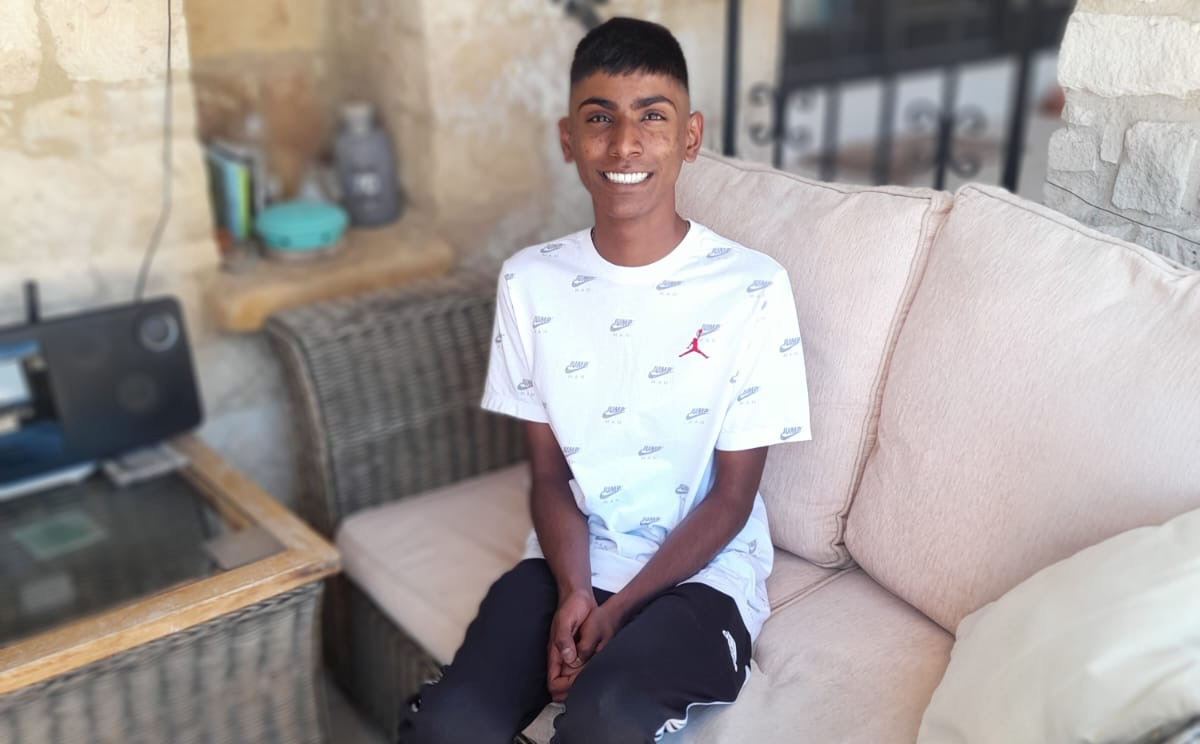As soon as Antreas turned 18 he was stateless
The development of humanitarian crises in the region has led to growing numbers of asylum seekers arriving on the island’s shores, while the country’s status as a European Union member state makes it a shining city on a hill for many.
As a result of these changing circumstances, the country’s migration system and its relevant laws are having to change fast to deal with a present and a future which was not foreseen by previous generations of lawmakers.
However, as fast as the laws may change, some people are still being left behind or caught in traps by the advancement of Cyprus’ migration legislation, including some who were born here.
One such incidence is that of Kurukulasooriya Antreas Fernando, who was born in Cyprus in 2004, the year the country joined the EU and before Cyprus changed its residency laws in 2007. Antreas was born to two Sri Lankan parents, with his mother Maria having migrated to the island in 1999, having previously lived in Greece.
Maria holds permanent residency in Cyprus and works as a carer and a cleaner, and as such, Antreas was covered in Cyprus by his mother’s status on the island for the first 18 years of his life, as a dependant of her.
However, when he turned 18 and was no longer a minor, Cypriot law no longer considered him a dependent of his mother, and thus his own status on the island was taken away.
Before 2007, Cypriot nationality was not offered to children born on the island if neither of their parents were citizens. Thus Andreas has remained a third country national in the country of his birth, before effectively becoming an undocumented migrant or, in other words, an illegal immigrant, on his 18th birthday.
Retired British solicitor Jeffrey Stevens, who has taken an interest in the case, believes Antreas’ human rights have been violated by the state of affairs.
He told the Cyprus Mail he plans to take the matter up first with the Cypriot government, then with the human rights ombudsman, and then, if necessary and as a last resort, take the case to the European Court of Human Rights (ECHR) in Strasbourg.
He said protestations have already been made to the Limassol immigration unit, with a retired police officer from Pachna, the village in which Antreas resides, having accompanied him to attempt to secure Antreas citizenship or, at the very least, some form of legal status in the country.
“When he got there, he was effectively told the answer was negative because he didn’t have any money. The insinuation is that had he had money to give to them, something would have been done about it,” Stevens said.
In addition, Stevens said Antreas was told to “apply for a visa to work on a farm”, something he said was degrading as he is an “intelligent, well-educated young man who wants to get a professional job and be able to contribute meaningfully to Cypriot society.”
Antreas therefore finds himself at an impasse at present, unable to secure any form of legal status in the only country in which he has ever lived and thus unable to find any form of gainful employment or make steps in his career, and living in fear of deportation to a country he does not consider his own.
He is a Sri Lankan national and has a Sri Lankan passport but has never visited the country and does not speak his parents’ native language of Sinhalese.
Asked about cases such as Antreas’, interior ministry spokeswoman Margarita Kyriakou told the Cyprus Mail applications for residence rights for people in situations such as this are examined “based on the available facts”.
She moved to make assurances that Antreas and others like him would not face prejudice for having effectively been living without any legal status since they turned 18, given the extenuating circumstances.






Click here to change your cookie preferences